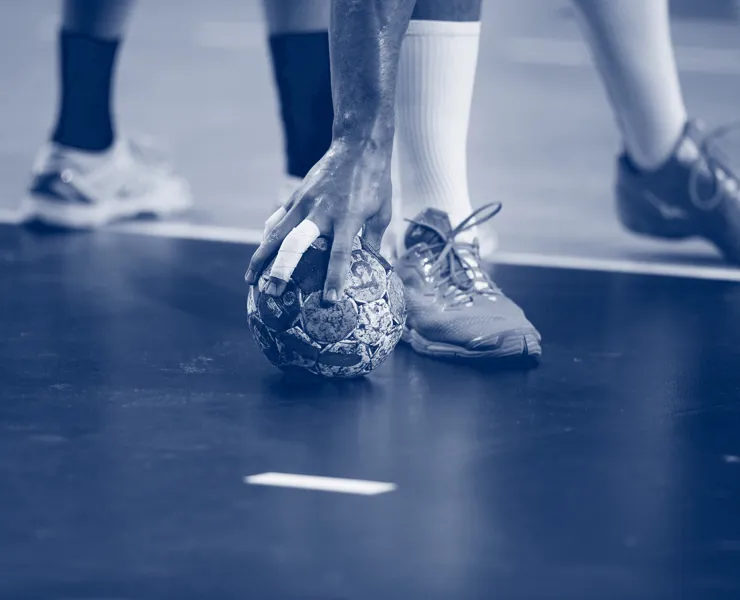European handball’s club competitions have reached their peak. What is your summary on the eve of some of the 2021/22 season’s most decisive matches?
Michael Wiederer: When we are looking at the quarter-finals in the EHF Champions League and the EHF European League Men, we have teams from at least six nations represented. In the EHF European League Men, it is even eight teams from eight different countries. The involvement of that many nations underlines that we have healthy and competitive competitions which are not dominated by teams from certain leagues as it may have been the case in the past.
Furthermore, and again in the EHF European League Men, the Last 16 matches have been very close; over the past two seasons, we have seen a very positive development in the quality of the game. In the processes to optimise our competitions the quality of the participating clubs is an important argument to create motivation for other clubs to join.
What has been the impact of Russian invasion in Ukraine and the subsequent decision of the EHF Executive Committee to suspend teams from Russia and Belarus?
Michael Wiederer: The impact has arguably been smaller in the men’s competitions than in the women’s events. On the men’s side, chances for these clubs to qualify had already been small, whereas in the EHF Champions League Women, with CSKA and Rostov-Don, two relevant teams went out of competition. Furthermore, the transfers of top players from these clubs have strengthened other teams across Europe. It is important to underline though that all these transfers were managed within the existing regulations and no release was fostered by the EHF. Furthermore, independent of the political situation, it is always regrettable when clubs, which have qualified for a competition stage, cannot take their chance.
What does the current situation mean for the registration for the 2022/23 season?
Michael Wiederer: We have a status quo and the EHF will further handle this question as part of the upcoming registration process.
Viborg has just been named hosts of the EHF Finals Women. How do you rate the development of the final tournaments in the EHF European League?
Michael Wiederer: Viborg, multiple winners of the EHF Champions League Women, are for sure very good hosts for the upcoming tournament. In general, the EHF FINAL4s and the EHF Finals tremendously support the interest in and the visibility of European handball. It is the goal to eventually define a neutral location and a working business model also for the EHF Finals. Arguably the past two years were not that helpful in this respect. However, we have always managed to find attractive hosts.
What about the EHF FINAL4s in Budapest and Cologne?
Michael Wiederer: For both EHF FINAL4s there are existing contracts until 2024. This year will be special though, as for the first time since the start of the pandemic, we are hopeful to play in front of sold-out stands. There is a special focus on women’s handball as more clubs on top level also influence the national teams – an important factor as the Women’s EHF EURO 2024 in Hungary, Switzerland and Austria will be the first which will we played with 24 teams.
At the same time, there is no top-level national team handball without the right at the foundation which is why the EHF is also looking at restructuring its younger age category events. We are also investing in programmes such as ‘Respect Your Talent’ to foster the idea of professionalisation already in the upcoming generations of players.
The EHF Champions League will enter its third season after the last major revamp. What are the next steps for the development of handball’s European top-flight?
Michael Wiederer: A decision on the future look of the EHF Champions League will be made next year. This happens in accordance with the club representatives on the level of the Professional Handball Board and of course within the framework of our media and marketing contracts.







